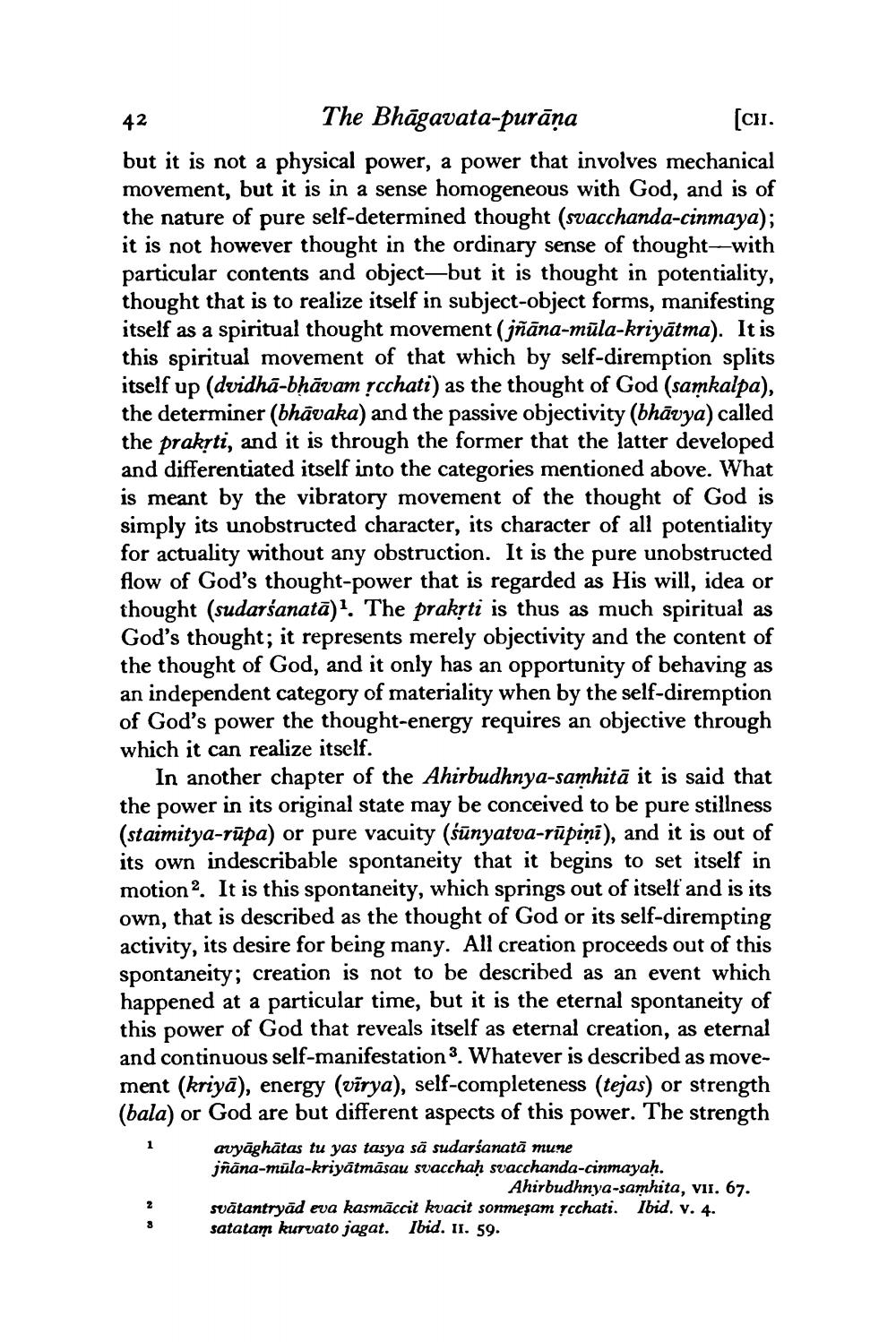________________
42
The Bhagavata-purāṇa
[CH.
but it is not a physical power, a power that involves mechanical movement, but it is in a sense homogeneous with God, and is of the nature of pure self-determined thought (svacchanda-cinmaya); it is not however thought in the ordinary sense of thought-with particular contents and object-but it is thought in potentiality, thought that is to realize itself in subject-object forms, manifesting itself as a spiritual thought movement (jñāna-mūla-kriyātma). It is this spiritual movement of that which by self-diremption splits itself up (dvidhā-bḥāvam ṛcchati) as the thought of God (samkalpa), the determiner (bhāvaka) and the passive objectivity (bhavya) called the prakṛti, and it is through the former that the latter developed and differentiated itself into the categories mentioned above. What is meant by the vibratory movement of the thought of God is simply its unobstructed character, its character of all potentiality for actuality without any obstruction. It is the pure unobstructed flow of God's thought-power that is regarded as His will, idea or thought (sudarsanatā)1. The prakṛti is thus as much spiritual as God's thought; it represents merely objectivity and the content of the thought of God, and it only has an opportunity of behaving as an independent category of materiality when by the self-diremption of God's power the thought-energy requires an objective through which it can realize itself.
In another chapter of the Ahirbudhnya-samhitā it is said that the power in its original state may be conceived to be pure stillness (staimitya-rupa) or pure vacuity (śūnyatva-rūpiņī), and it is out of its own indescribable spontaneity that it begins to set itself in motion2. It is this spontaneity, which springs out of itself and is its own, that is described as the thought of God or its self-dirempting activity, its desire for being many. All creation proceeds out of this spontaneity; creation is not to be described as an event which happened at a particular time, but it is the eternal spontaneity of this power of God that reveals itself as eternal creation, as eternal and continuous self-manifestation 3. Whatever is described as movement (kriyā), energy (virya), self-completeness (tejas) or strength (bala) or God are but different aspects of this power. The strength
1
8
avyāghātas tu yas tasya sa sudarśanată mune
jñāna-mula-kriyātmāsau svacchaḥ svacchanda-cinmayaḥ.
Ahirbudhnya-samhita, vII. 67.
svātantryād eva kasmāccit kvacit sonmeṣam rcchati. Ibid. v. 4. satatam kurvato jagat. Ibid. II. 59.




